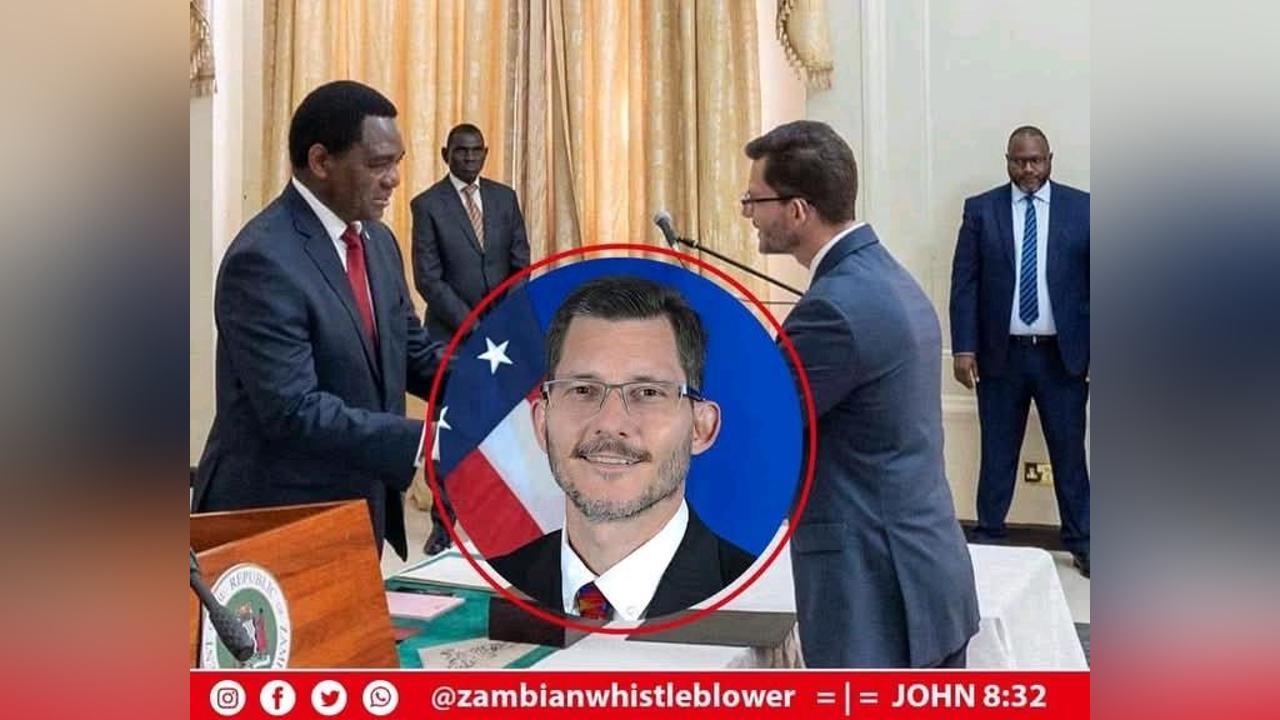Africa-Press – Zambia. The retention of Ambassador Michael C. Gonzales as the United States’ envoy to Zambia under President Donald Trump’s administration offers a compelling case study in the contrasting philosophies underpinning diplomatic appointments in the United States and Zambia. Appointed by President Joe Biden in 2022, Ambassador Gonzales has not only remained in his position following the transition of power but has continued to serve with distinction—underscoring the meritocratic principles that can guide effective diplomatic service.
Ambassador Gonzales, a career member of the Senior Foreign Service, was nominated on April 22, 2022, confirmed by the United States Senate on August 4, and presented his credentials to Zambian President Hakainde Hichilema on September 16 of the same year. His background includes extensive experience in African affairs, with prior postings in Malawi, Ethiopia, Zimbabwe, and Uganda. His professional track record, rather than his political affiliation, has clearly informed the decision by the new U.S. administration to retain him.
This stands in marked contrast to Zambia’s own approach to diplomatic appointments, which have historically been characterized by patronage and political favoritism. In many instances, ambassadorial postings have been awarded to ruling party cadres, often lacking the qualifications or experience necessary for effective diplomatic representation. These appointments frequently reflect domestic political calculations rather than strategic national interests.
The consequences of such an approach have been significant. In 2022, President Hichilema publicly criticized some diplomats for engaging in misconduct abroad, remarking that some envoys spent more time consuming alcohol than advancing Zambia’s foreign policy objectives. Further reputational damage was incurred when the ambassador to South Africa was recalled following allegations of sexual misconduct—an episode that underscored the risks of appointing individuals without adequate professional grounding.
By contrast, the U.S. system distinguishes between political and career appointments. While presidents do nominate political allies to certain high-profile posts, particularly in allied or ceremonial locations, the vast majority of American ambassadors to strategically important or complex regions are drawn from the ranks of the career foreign service. These individuals undergo rigorous training and are subject to Senate confirmation—a process that ensures a basic threshold of competence and accountability.
Ambassador Gonzales’s recent decision to suspend $50 million in U.S. medical aid to Zambia, following credible findings of widespread theft of donated medications, exemplifies the kind of principled and evidence-based leadership that experienced diplomats bring to the table. His actions, although difficult, reflect a broader commitment to integrity in foreign aid and a willingness to confront difficult truths in the interest of long-term partnership and reform.
Zambia stands to benefit significantly from adopting a more professionalized and merit-based system of diplomatic appointment. In an increasingly interconnected and competitive global environment, the capacity to represent national interests effectively on the international stage is not a luxury, but a necessity. Strengthening the integrity of foreign service appointments would not only enhance Zambia’s credibility abroad but also contribute to more coherent and consistent foreign policy outcomes.
The continued service of Ambassador Gonzales under two ideologically distinct U.S. administrations offers an instructive example of the value of competence, continuity, and professionalism in diplomacy. It is a standard worth aspiring to.
For More News And Analysis About Zambia Follow Africa-Press







